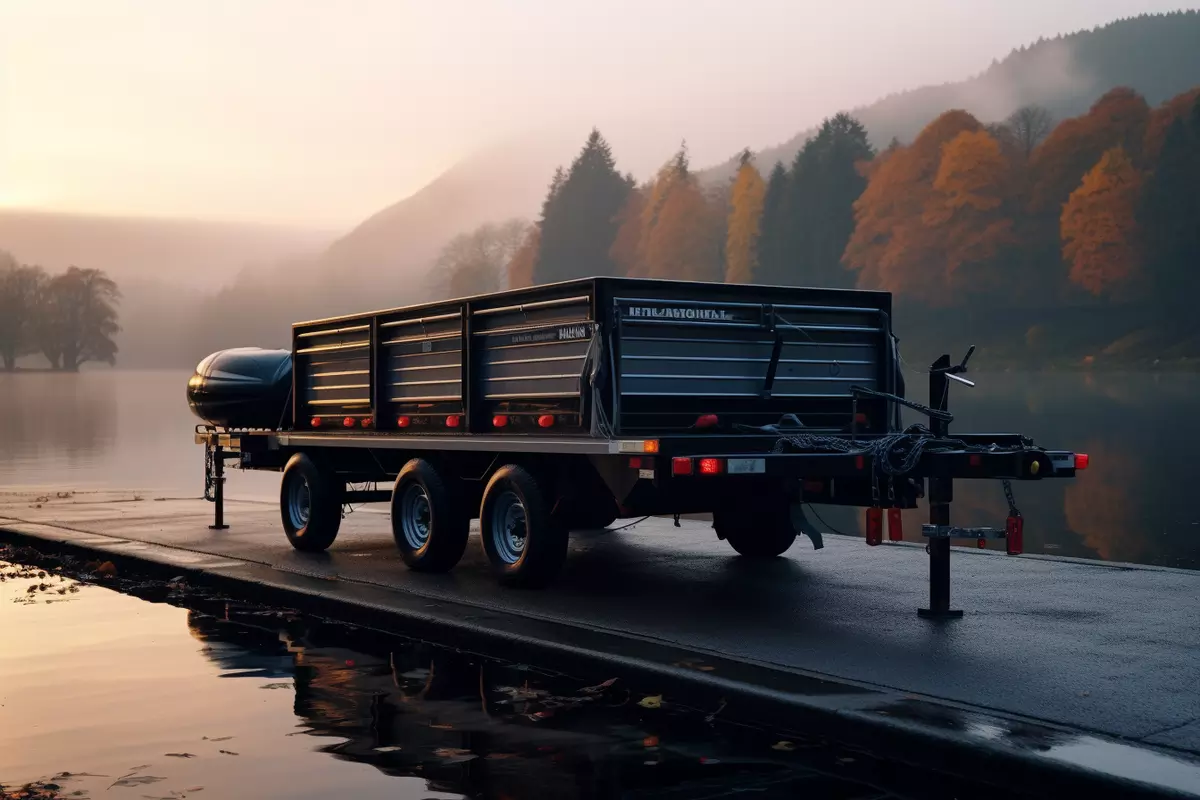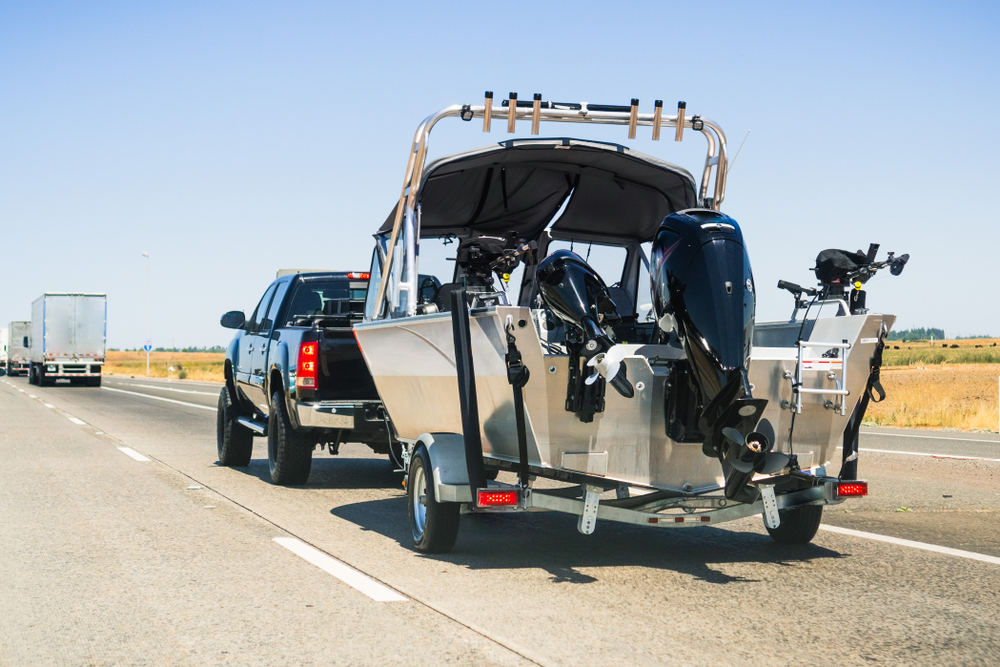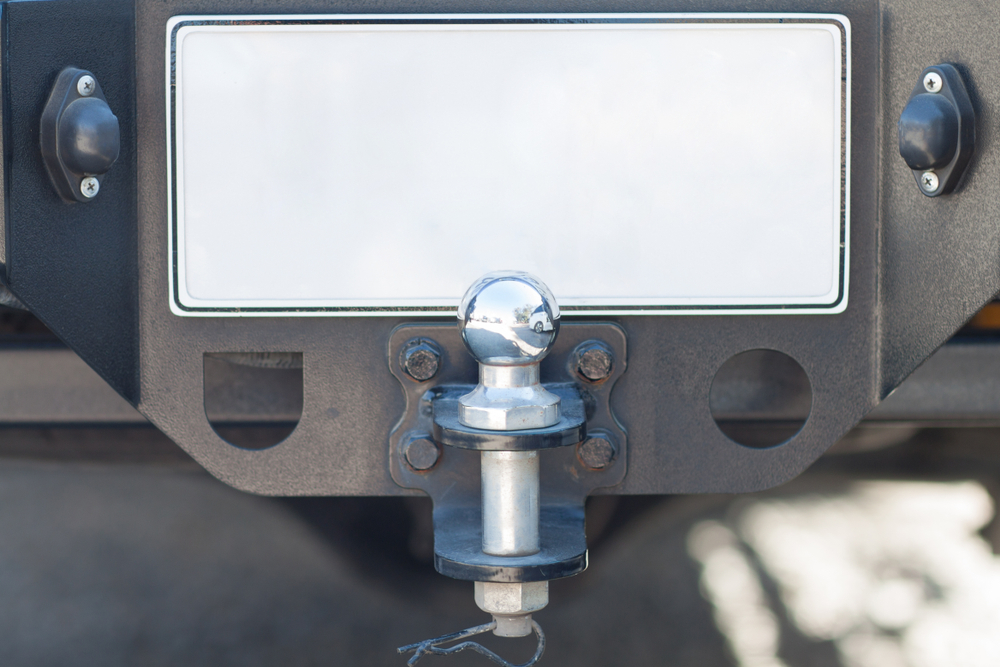5 min read
Do I Need Plates On My Boat Trailer? (State By State Laws!)
Check state-by-state laws on boat trailer plates! Essential read for travelers with boats. Learn registration requirements to avoid fines.

Owning a boat involves a lot of responsibility, between maintenance, storage, towing, insurance, and cost. There are lots of things to remember and do, but if you love boating, it’s all worth it. You might already have a boat title and registration, but do you need to put plates on your boat trailer?
Most states require plates on boat trailers, but a few of them do not. However, even if your state doesn’t require boat trailer plates, you might want to get them anyway. You’ll likely need a plate when you cross state lines. Most states give you 30 days to register and plate your boat trailer at your local DMV.
Since the rules vary from state to state regarding registering and plating boat trailers, it’s best to check your local laws. However, this article can serve as a good jumping-off point to point you in the right direction and answer your questions about boat trailer plates.
Requirements for Boat Trailer Plates, By State

Each state has its own set of rules regarding boat trailer registration and plates, and some don't require plates. In some cases, you may only need a plate on your trailer if it’s over a certain weight.
In other situations, your trailer may need a certain number of axles to require registration and a plate. Some states only require registering your boat trailer, while others require a title.
A title and registration are not the same things. Registering your boat trailer allows you to bring it out on the road, get your plate, and show you can haul it. A title only proves ownership of the trailer.
Here’s a snapshot of the various rules regarding plates for boat trailers in all 50 US states, broken down by region. If you need to register your trailer, it means it needs plates unless otherwise noted.
However, always check directly with your state’s laws since these rules can change. Ultimately, it’s your responsibility to get the correct paperwork for your boat trailer and plate it if you need to.
Boat Trailer Registration Rules in the Northeast US
This is an overview of the boat trailer registration requirements in the Northeast United States, including the Middle Atlantic and New England states.
Boat Trailer Registration Rules in the Western US
The Western US boat trailer requirements include the rules for the Mountain and Pacific States.
Boat Trailer Registration Rules in the Southern US
Here are the boat trailer plate requirements for the South Atlantic, East South, and West South United States.
Boat Trailer Registration Rules in the Midwest US
The East North Central and West North Central states comprise the Midwest region of the US. Here are the boat trailer requirements in these states.
Should You Get Boat Trailer Plates Anyway?

Even if your state doesn’t require you to put plates on your boat trailer, you should consider getting them anyway. Most states require you to have plates on your boat trailer.
Therefore, if you plan to take your boat across state lines, It’s a good chance that it requires plates on boat trailers. If you only plan to travel to a particular state, you could always check the requirements for that specific state.
However, also consider any other states you might need to drive through to reach your destination. Unfortunately, even if you’re only passing through, you would still need plates on your boat trailer if the state requires them.
If you were to enter a state requiring boat trailer plates without plates, you would be violating state laws. You could potentially get a ticket. So, unless you know for sure you won’t be traveling out of state with your boat trailer, it’s best to register it.
What If You Live on the Border Between States?
If you live on or near the state border, register and title your boat trailer where you use it the most. Many states allow out-of-state residents to title and plate boat trailers if they use them there for a certain percentage of the year.
However, first, check with your local department of motor vehicle office. You want to ensure there are no issues with connecting the registration to your state of residency.
In some states, they might require you to register or title the boat trailer in the same state you live. Or you might need to register and title it in whichever state you store the trailer. (For example, you live in one state but keep your boat trailer at a facility in your neighboring state).
Tips for Registering Your Boat Trailer

It’s essential to check the specific state laws regarding registering and titling boat trailers and have your paperwork ready in advance. Understandably, you’re ready to load up your boat and cargo and head to the water. But you want to make sure you cover all your bases first.
1. Know the Boat Trailer Registration Requirements in Your State
Typically, most states allow 30 days for you to register or title your boat trailer if required. However, this isn’t the standard across the board, so check with your local registration authority, whether the Department of Motor Vehicles or the Tax Collector’s Office.
You can always do a search online for boat trailer registration along with your state’s name. However, going straight to the source will give you precise, verified information. You also want to find out where you need to go in your state to get your boat trailer plate.
2. Where Do You Get a Boat Trailer Plate?
You can usually get your boat trailer plate at your local Department of Motor Vehicles Office. This is the typical location for most states, whether it’s the Division of Motor Vehicles, Bureau of Motor Vehicles, etc.
In some states, you might get the plate at the Tax Collector’s Office. Other states, like Louisiana, have made it possible to get your boat trailer plate at the Office of Wildlife and Fisheries when you get your boat registered.
Once you know where to register your boat trailer, call to see if you can make an appointment. Planning ahead can help save you a lot of time in the waiting room.
If the office doesn’t accept appointments, ask them what the least busy times are to visit. Some locations might even post approximate weight times on their websites to help you plan when to go.
3. Have Your Paperwork Ready
You may need a signed title or application for title, a receipt for paid personal property taxes, and proof of trailer insurance. Before heading to the DMV to get your plate, ask about the specific paperwork you need. You will also need to bring any applicable fees for your title and registration.
In some states, before you can register and plate your boat trailer, you must title it. Therefore, ensure you have what you need to go through the title process first. If the state only requires titles on boat trailers over a certain weight, you might need a weight certificate.
4. Will I Need to Get a Trailer Inspection?
Depending on your boat trailer’s number of axles and weight, you might need a trailer inspection in some states. For many states, if your trailer is over 3,000 pounds, it will require brakes and need an inspection.
Some states will require your boat trailer to undergo and pass an inspection if it is a tandem or triple-axle trailer. Other states have certain weight restrictions that dictate whether a trailer requires inspection.
You may need a weight certificate to register your trailer in some states. If the trailer’s title states the empty weight, you might be able to forgo getting a weight card.
These are just a few examples of the different requirements you might face when registering your boat trailer. If you need to have an inspection, you will need to bring your boat trailer to an authorized inspection station.
Many auto shop inspection stations won’t be large enough to accommodate a boat trailer. You could look into stations that accommodate RVs, large trucks, or specifically work with trailers. If you need an inspection sticker and don’t have one, you are in violation and could potentially receive a ticket.
5. How Much Does It Cost for a Boat Trailer Plate?
Boat trailer plate fees are relatively inexpensive, averaging $10 to $30, and can last for two to four years or even be permanent. Each state has its own specific fee schedule for boat trailer registration and plates. Make sure to know what the fees are before you go so you can have the appropriate amount ready.
You can typically find these fees on the Office of Motor Vehicles website for that state or whichever authority handles boat trailer registrations. The price you pay will usually depend on the size of your trailer, its weight, and the renewal period. For example, plates for a trailer up to 1,500 pounds in Louisiana costs $25 for four years.
For some states, you can get a permanent registration for your trailer as long as you remain the owner. This registration remains with the trailer for as long as you have it. For example, you can get a permanent registration in Arkansas for just $36, but you can’t transfer it to a new owner.
However, if you’re required to title your trailer before you can register it, it will cost you more. Title fees can be roughly $60 to over $120. But, once you have the title, you should only have your registration renewal fees moving forward.
Summary
A boat trailer is a necessity when you own a boat, but it can also add a few more requirements to your to-do list. You need to register your boat trailer in most of the 50 US states. However, a few states don’t require you to put tags on your boat trailer, like Alabama and Tennessee.
But you might want to get plates anyway. If you enter a state requiring tags without plates on your trailer, you could end up with a ticket. Just because your state requires you to register your boat trailer, it might not require a title. In other places, the opposite might be true, and you’ll need a title but won’t have to register your boat trailer.
In some states, you only need to title your boat trailer if it’s over a specific weight. Since rules vary in every state, it’s up to you to contact the appropriate state office to learn the precise requirements. You might also need to have your boat trailer inspected in some states before you can get a plate for it.
Luckily, boat trailer registration fees are relatively inexpensive, so you can get what you need and be on your way.


























































![Ultimate Guide: Best Places to Live in Delaware for Everyone [2024]](https://assets-global.website-files.com/658352c9dc46a8af3404d0e2/66118281565af45f6b1b30b7_NHIOz7nu3T62vmrZOi-FIX00BZTklY2LQhle4Q9mXBg.webp)














































